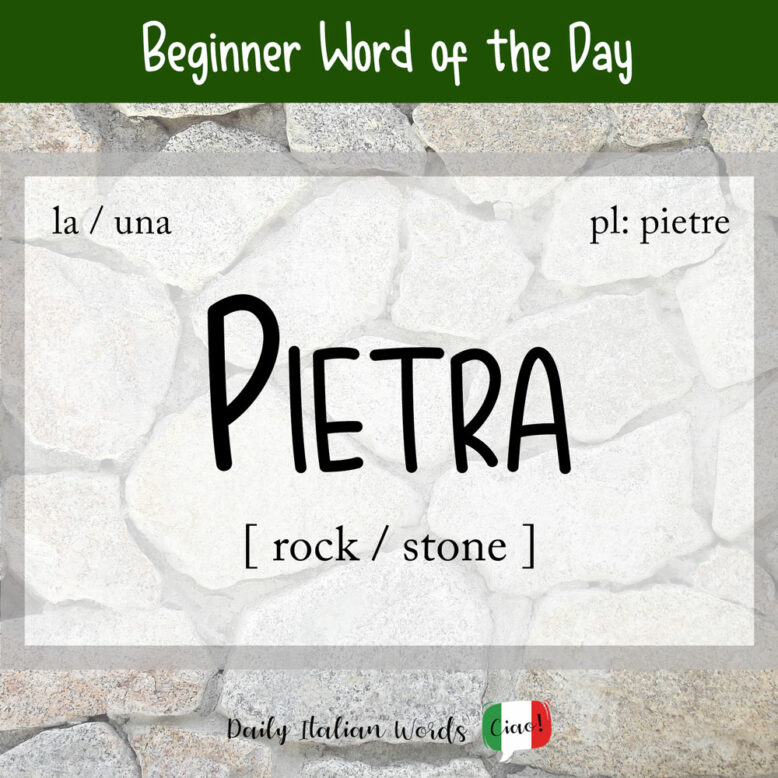The Italian word pietra (feminine, plural: pietre) can be translated as either rock or stone in English. It comes from the Greek word πέτρα (pétrē).

As you can see from the two examples below, pietra is used to talk about both the compact mass formed by natural mineral substances, as well as the smaller fragments that break off from that mass.
Questo pavimento è in pietra.
This floor is made of stone.
Il bambino ha lanciato una pietra contro la finestra.
The boy threw a rock/stone at the window.
A good way of remembering the word pietra is to think of the English name Peter (or Pietro in Italian) which both mean stone.
Below are a few useful terms containing the word pietra:
- pietra miliare = milestone
- pietra preziosa = gemstone
- pietra filosofale = philosopher’s stone
- età della pietra = Stone Age
- pietra tombale = tombstone
- pietra a vista = exposed / natural stone
A famous quote from the Bible is Let him who is without sin cast the first stone. This translates as Chi è senza peccati scagli la prima pietra in Italian.
A synonym for pietra is sasso. There isn’t a clear distinction in many cases, except for specific terms such as pietra preziosa (you wouldn’t say sasso prezioso). Sasso is also more common for stones that have been smoothed by water.

Idioms featuring the word ‘pietra’
Avere il cuore di pietra / Essere duro come la pietra
Literal translation: to have a heart of stone / to be as hard as stone
English meaning: to have a heart of stone
Essere la pietra dello scandalo
Literal translation: to be the stone of the scandal
English meaning: to be the cause of a scandal or mess
Metterci una pietra sopra
Literal translation: to put a stone on it
English meaning: to turn the page, to leave the past behind
Posare la prima pietra
Literal translation: to place the first stone
English meaning: to start the construction of a building, often with a ceremony
Sentirsi una pietra sullo stomaco
Literal translation: to feel a stone in the stomach
English meaning: to not be able to swallow or stomach something (literally or figuratively)
Sentirsi una pietra sul cuore
Literal translation: to feel a stone on the heart
English meaning: to feel an unstoppable remorse or pain
Heather Broster is a graduate with honours in linguistics from the University of Western Ontario. She is an aspiring polyglot, proficient in English and Italian, as well as Japanese, Welsh, and French to varying degrees of fluency. Originally from Toronto, Heather has resided in various countries, notably Italy for a period of six years. Her primary focus lies in the fields of language acquisition, education, and bilingual instruction.


